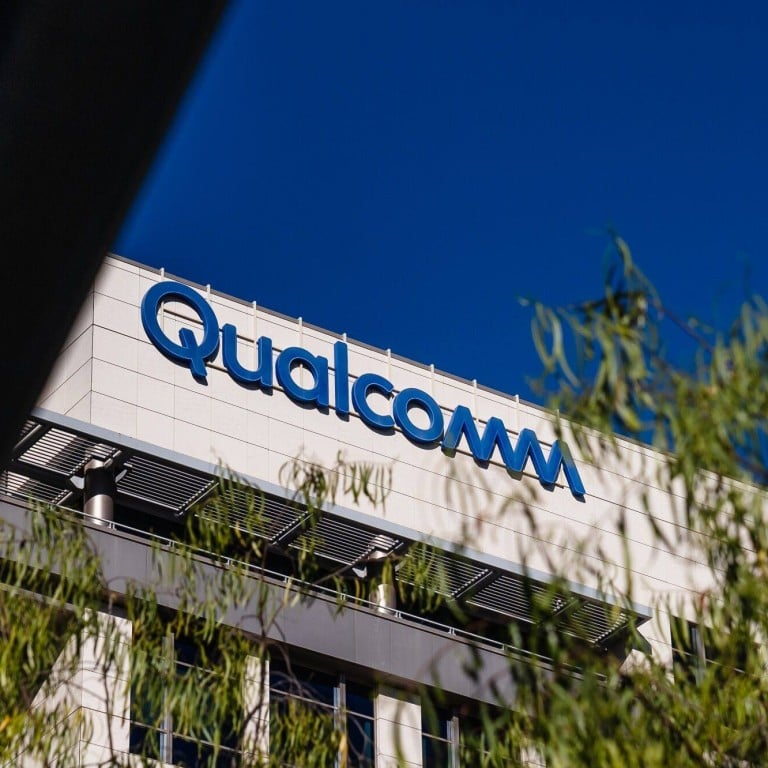
Qualcomm highlights China sales jump as it beats estimates, in latest signal of smartphone market rebound
- The world’s largest seller of smartphone chips has given an upbeat revenue forecast for the current quarter
- The company’s sales to Chinese smartphone makers jumped 35 per cent from the June quarter to September quarter
The San Diego, California-based firm on Wednesday reported sales of US$8.63 billion for the financial fourth quarter, down 24 per cent from last year and slightly above consensus estimates compiled by Bloomberg. For the full financial year, revenue dropped 19 per cent from the year prior.
Global smartphone manufacturers had sold most of their existing stock and were starting to ramp up fresh orders, Qualcomm CEO Cristiano Amon said in a post-earnings call, adding that the firm saw an estimated 35 per cent jump in sales to Chinese smartphone makers between the June and September quarters.
Qualcomm is one of the largest global suppliers of software and semiconductors used in wireless telecommunications products. China made up over 60 per cent of the company’s sales in the most recent financial year.

The firm is predicting a current-quarter revenue of between US$9.1 billion to US$9.9 billion, with the midpoint above expectations of analysts polled by Bloomberg.
“We are seeing early signs of stabilisation in demand for global 3G, 4G [and] 5G handsets,” Qualcomm’s finance chief Akash Palkhiwala said on the call with analysts.
The global smartphone market declined by just 1 per cent in the last quarter, according to a report last week by Canalys. The research firm expects “modest growth” in global smartphone shipments in a “cautious-looking 2024”.
Chinese smartphone companies have also signalled more optimism, with Xiaomi president Lu Weibing last month predicting that the market would swing back to growth next year.
Qualcomm is a supplier to Xiaomi and its main Chinese rivals Oppo and Vivo, as well as Honor, the Huawei Technologies spin-off that was the top smartphone vendor in China last quarter.
In late August this year, Huawei launched a surprise smartphone, the flagship Mate 60 Pro, that is equipped with a Chinese-made 5G processor, to great excitement locally.
Huawei posts 2.4% revenue growth in first 9 months on back of Mate 60 series launch
The company’s re-entry into the premium 5G smartphone market is expected to have little to no impact on Qualcomm’s business with Huawei’s Android competitors in China, according to CEO Amon.
Qualcomm has one of the biggest footprints in China of any US company, but its presence has been increasingly complicated by escalating Sino-US trade tensions, which the company listed as a risk in its forward-looking statements.
Qualcomm is also a major supplier to Apple, another American company navigating heightened geopolitical tensions between the world’s two largest economies.
Qualcomm’s Nasdaq-listed shares closed up 1.7 per cent in the US on Wednesday, and rose almost 4 per cent in after-hours trading.

